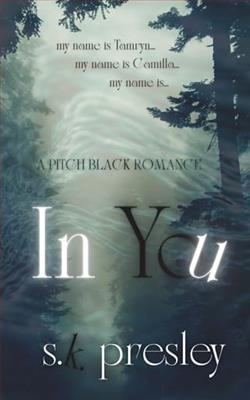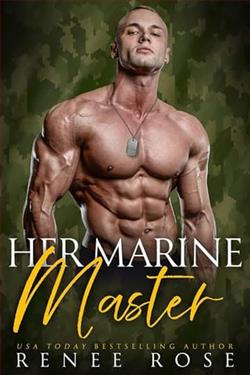Page 22 of The Last Flight
I take a last look at myself in the mirror, the way my hair tumbles and curls around my face, and take a deep breath before attaching the medium-sized comb to the clippers and turning them on. I remind myself that even if I mess up, it won’t matter. Eva’s words about Berkeley come back to me.It’s easy to blend in because everybody’s a little weirder than you are.No one will look twice at a bad haircut.
I’m surprised by how easy it comes off, leaving an inch and a half of hair resting against my scalp. My eyes look bigger. My cheekbones more pronounced. My neck longer. I turn one way, and then another, admiring my profile, before turning to the box of hair color. Not done yet.
* * *
The dye has to stay on for forty-five minutes, so while I wait, I spread the newspapers open on the coffee table and read, my scalp tingling and burning, the sharp smell of chemicals making me dizzy. The articles are filled with details of the crash, though they’re incomplete, gleaned only from radio communication with the air traffic controllers. But it’s enough to chill me, to force me to reckon with what I’ve done. Approximately two hours into the flight, after they’d crossed Florida and were over the Atlantic, one of the plane’s engines went out. The pilots tried to turn around and radioed Miami, requesting an emergency landing. But the plane didn’t make it, instead crashing into the water thirty-five miles off the coast. The article is filled with statements from NTSB officials, and of course, Rory’s representative on behalf of the families. No details are given yet about recovery, other than to say it’s ongoing.
I try to imagine my bag, my phone, my pink sweater, torn from Eva’s body and floating in the water, waiting for someone to scoop them out and identify them. Or nestling onto the sandy bottom of the ocean, where they’ll soon be lost forever. I wonder whether they will try to recover remains, or if that’s even possible. And what might happen if they come across someone whose dental records don’t match anyone on the flight manifest.
I take several deep breaths, focusing on the biology of it. Oxygen entering my bloodstream, feeding my cells, then releasing carbon dioxide into the quiet space that surrounds me. In and out, again and again, each breath a reminder:I made it out. I survived.
* * *
Forty-five minutes later I stare at myself in the mirror of Eva’s bathroom, astonished. Taken on their own—my eyes, my nose, my smile—I can still see my old self, looking back at me. But as a whole? I’m someone completely new. If I seem familiar to anyone, they’re going to search different corners of their mind, different parts of their life—someone from work or college. Perhaps the daughter of a former neighbor. They won’t see Rory Cook’s wife, who died in a plane crash.
The look suits me, and I love the freedom it offers. Rory always insisted I keep my hair long, so that I could wear it up for formal events and down for casual ones, arguing it was more feminine. I grin, and am surprised to see flashes of my mother, of Violet, smiling back at me.
* * *
On the nightstand next to Eva’s bed, the clock flips to seven o’clock, and I can’t help but think about what I’d be doing right now if I were still living my old life in New York. I’d be sitting across from Danielle in my office, outlining our schedule for the day. Morning Meeting, she called it. We’d discuss the calendar—meetings, lunches, evening events—and I’d give her the tasks I needed her to work on for the day. But if my plan had worked, I’d be somewhere in Canada. Maybe on a train, heading west. I’d be scouring the news for any hint of my disappearance, the plane crash just a sad story that might have caught my attention for a moment. Instead, it’s the turning point for my entire life.
I return to my computer and pull up the CNN home page, clicking on a short human-interest piece titled “Rory Cook’s Second Heartbreak,” with my photo alongside Maggie Moretti’s. They rehash her death over twenty-five years ago and the subsequent investigation into Rory’s involvement, and for the first time I realize how similar Maggie and I are. Some of the information I’d already known about her—she’d been a track star at Yale, where she’d met Rory, and she, too, had come from a small town. But I hadn’t known that her parents had also died, when she was even younger than I was. Looking at us side by side, it makes me wonder if Rory had a type, zeroing in on women alone in the world who might be eager to join an established family like the Cooks. I know I was at first.
* * *
We’d met at an off Broadway play two years after I’d graduated from college. He sat in the seat next to mine and struck up a conversation before the curtain rose. I’d recognized him immediately, but nothing prepared me for how charismatic and funny he was in person. Thirteen years my senior and well over six feet, Rory had light brown hair streaked with gold, and blue eyes that seemed to pierce straight through me. And when I was under his gaze, the whole world faded away.
At intermission, he bought me a drink and told me about an art program the Cook Family Foundation was bringing to inner-city schools. These are the things that made him three-dimensional and more than just a face I recognized from the pages of magazines. His passion for education. The fire he had to make the world a better place. At the end of the show, he asked for my number.
I’d kept my distance at first. Older men like Rory—with their money, privilege, and connections—were not my speed. I didn’t have the cultural knowledge or the wardrobe. But he’d been subtly persistent, calling to ask my advice when the foundation hit a wall with an organization they wanted for their arts education initiative, or inviting me to a show at one of their project schools. I was lured in by his vision of philanthropy, of how he wanted to use his family’s money to better the lives of others.
All of that impressed me, but I fell in love with Rory’s vulnerability, the way he’d strived and failed to hold his mother’s attention. “As a young boy, it was hard not to resent her long absences, the months she spent in DC,” he’d told me once. “The constant campaigning—for herself, or for others—and the causes that would consume her. But now I can see why it was so important. The impact she had on people’s lives. I still get stopped in the street by people wanting to tell me how much they loved her. How something she did years ago still affects them now.”
But that kind of legacy always has a price. Whether he liked it or not, Rory was defined by his mother. When you Googled Rory Cook, she always popped up too. Images of her with a young Rory, on vacation or the campaign trail. Rory at age thirteen, scowling in the background at one of his mother’s political rallies, all elbows and pimples and one eye squinted shut.
And hundreds of images of Rory doing the bidding of the Cook Family Foundation, his mother’s dying gift to the world. People loved Rory because of who he almost was. And he’d spent his entire adult life trying to step out from behind her long shadow.
* * *
I click off the CNN home page and toggle over to take a look at Rory’s inbox, careful not to open anything that isn’t already read. He has at least fifty folders on the left-hand side, one for each of the organizations the foundation contributes to.Buried in that long list is one labeledClaire. I click on it and scan the condolence emails. Hundreds of them, page after page, from family friends, Senate colleagues of his mother’s. People who have worked with the foundation, quick to offer their sympathy.Let us know if there’s anything you need.
I open an email Bruce sent to Danielle several hours after the initial reports emerged about the crash, but before I’d been publicly named as one of the victims. He’d cc’d Rory. The subject line readsDetails.
I’m already drafting the statement and should have it ready well before any scheduled press conferences. Danielle, please handle the staff in New York. They are not to speak to anyone. Remind them that they all have active non-disclosure agreements.
Another folder,Google Alerts, is filled with mostly unread notifications. Every time Rory’s name appears online, he gets an email about it. Danielle also gets them in her inbox, because it’s her job to sort through them and brief Rory on anything important he might have missed. My mind leaps back to last week, Danielle and I on our way home from a Friends of the Library event, me staring out the window at the slushy streets of Manhattan while Danielle flipped through that day’s alerts. “A fluff piece inHuffPo,” she said, almost to herself. “Trash.” I turned to see her deleting the alerts, one after the other, only opening the ones from major media outlets. She caught my eye and said, “We’re going to need to hire an intern for this once the campaign starts. Hundreds a day are going to turn into thousands.”
Now I scan the long list of unread notifications in the wake of the crash and smirk. Too bad, Danielle.
I click over to the Doc. Blank. At the top it now readsLast edit made by Bruce Corcoran 36 hours ago.
I take a sip of Diet Coke, the carbonation tickling my nose. No one would ever imagine I wasn’t on that plane.
The sun is fully up now, and I study the room. The hardwood floor is covered with a deep red area rug, which contrasts beautifully with walls painted a warm shade of yellow that reminds me of the color of my mother’s living room, and in this moment, I feel protected, like a hibernating bear. While the world races on without me, I’m tucked up here, invisible, waiting until it’s safe to emerge again.
I ease open the top drawer of Eva’s desk, curious. I’m living in her house. Wearing her clothes. I’m going to have to use her name—at least for a little while. It would help to know who she was.
I start tentatively at first, as if I’m afraid if I move things around too much, someone will know I was here. Most of what I find is generic—faded receipts I can’t read. A few dried-out pens, a couple pads of paper from local real estate agents. As I begin to grow more comfortable, I reach my hand to the back, sliding the jumble of pushpins, paper clips, and a tiny blue flashlight to the front, trying to peer beneath the mess to the person who threw these items into the drawer, believing she’d have time to sort them out.















